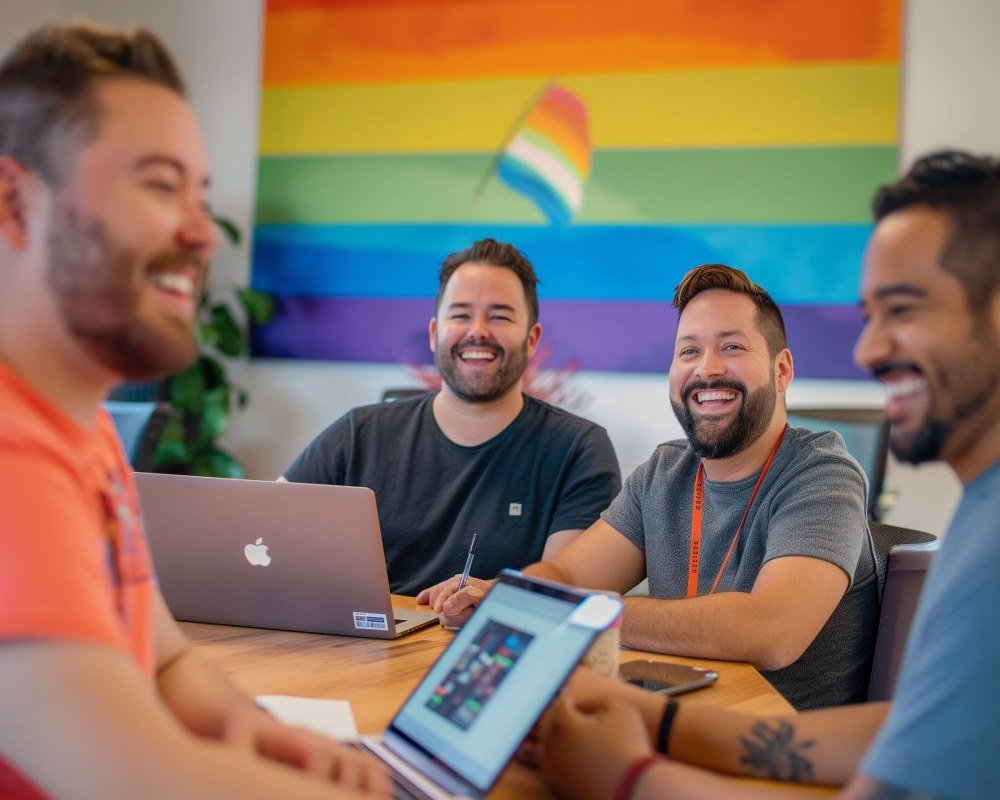
Why are people boycotting Target 2025? –
The question “Why are people boycotting Target 2025?” has sparked significant discussion and debate. With a rich legacy of supporting the LGBTQ+ community, Target has always been at the crossroads of social and corporate responsibility. However, recent events have led some groups to boycott Target, raising concerns about their products, policies, and marketing strategies. In this blog, we’ll explore the reasons behind the boycott, the implications for the LGBTQ+ community, and how businesses can navigate this complex environment.
Background: The Controversy Begins
Target has long been known for its inclusive marketing strategies and support for the LGBTQ+ community. However, the boycott stems from allegations that certain product lines and marketing campaigns may conflict with conservative or traditional values. Critics argue that the focus on LGBTQ+ representation challenges their beliefs, prompting them to reconsider where they shop. This question, “Why are people boycotting Target 2025?” reflects a broader clash between inclusivity and exclusivity in commercial spaces.

Why are People Boycotting Target 2025? The Core Issues
The primary reason behind this boycott is Target’s decision to prominently feature LGBTQ+ themes in its merchandise and advertisements. For some, this represents a meaningful step towards inclusivity, but others view it as an affront to their personal values. This dichotomy creates an environment where people must choose sides, leading to the question: “Why are people boycotting Target 2025?” While many applaud Target for its openness, others see it as straying from traditional retail norms.
Potential Impact on LGBTQ+ Support
One of the most significant consequences of the boycott is its potential effect on LGBTQ+ support. As Target explores new ways to connect with diverse communities, the backlash could influence other companies to reconsider their stance on inclusivity. It’s essential to understand the diverse perspectives within this question, “Why are people boycotting Target 2025?” and how they shape the future of corporate LGBTQ+ alliances. Businesses often walk a fine line between profitability and progressiveness.
Advertisement · Scroll to continue
Recommended
Economic Implications: A Double-Edged Sword
Economically, boycotts like this have a dual impact. While it may result in temporary financial setbacks for Target, it also opens the door for discussions about the purchasing power of the LGBTQ+ community. “Why are people boycotting Target 2025?” becomes a rallying cry for activists and marketers alike, encouraging a deeper understanding of consumer demographics. The decision to boycott shapes market dynamics and indicates a broader trend of consumer-driven activism.
Lessons for Businesses: Navigating Controversy
For companies like Gay Thrive LGBTQ+ Marketing Agency, understanding the nuances of consumer activism is crucial. The key takeaway from “Why are people boycotting Target 2025?” is the importance of aligning business strategies with consumer values. It’s essential to recognize that inclusivity can be both a strength and a challenge. Companies must weigh their corporate ethos against the potential backlash, ensuring that they remain true to their mission while addressing diverse customer needs.

Strategies for Better LGBTQ+ Engagement
Navigating the landscape of LGBTQ+ marketing requires sensitivity and strategic insight. For companies questioning “Why are people boycotting Target 2025?”, understanding how to authentically engage with diverse communities is vital. Here are some strategies to consider:
- Community Collaboration: Partner with LGBTQ+ organizations to ensure products and messages are authentic and respectful.
- Inclusive Representation: Showcase a variety of identities within marketing efforts to reflect the community’s diversity.
- Feedback Mechanisms: Implement systems to receive direct input from LGBTQ+ consumers and allies.
These strategies can help avoid the pitfalls that fuel boycotts and foster genuine connections with LGBTQ+ customers.
Benefits of Inclusivity in Marketing
Embracing inclusivity offers numerous benefits for businesses. It enhances brand loyalty, broadens customer bases, and fosters innovation. “Why are people boycotting Target 2025?” underscores the need for companies to address both the challenges and opportunities of inclusive marketing. By being proactive, businesses can capitalize on the expansive potential of the LGBTQ+ market and reinforce their commitment to diversity and equality.
Additional Insights: Understanding the LGBTQ+ Definition
Understanding terms like gay, lesbian, transgender, queer, and bi is critical for crafting effective marketing messages. The acronym LGBTQ+ encompasses a wide range of identities, each with unique experiences and perspectives. As businesses navigate questions like “Why are people boycotting Target 2025?”, they should strive to educate themselves about these identities, challenging stereotypes and promoting acceptance. An informed approach creates more meaningful connections with the LGBTQ+ community.

Advertisement · Scroll to continue
Recommended
Community Responses: Support and Criticism
While some people actively boycott Target, others rally in defense of the company. Supporters argue that inclusivity is essential for social progress and commend Target for its stance. On the other hand, some critics feel alienated by what they perceive as forced inclusivity. “Why are people boycotting Target 2025?” serves as a litmus test for societal views on diversity, highlighting the divide between inclusivity as a social norm versus a business practice.
Q&A: Addressing Common Concerns
In addressing “Why are people boycotting Target 2025?”, several questions frequently arise. Here are some insightful responses:
- Why is Target’s support for the LGBTQ+ community causing a boycott? – Target’s marketing and products align closely with LGBTQ+ values, which some view as contradictory to their beliefs.
- Is the boycott impacting Target’s financial performance? – While there may be short-term impacts, the long-term effect depends on consumer loyalty and broader market trends.
- How can businesses address similar challenges? – Companies should engage with diverse communities, value inclusivity, and maintain open dialogues with stakeholders.
This format helps clarify the multifaceted nature of the boycott and provides guidance for companies navigating similar issues.
Future Considerations: The Path Ahead
Looking forward, the conversation around “Why are people boycotting Target 2025?” encourages businesses to reassess their roles in promoting diversity and inclusion. Through strategic engagement and authentic partnerships, companies can sustain positive relationships with the LGBTQ+ community while balancing broader societal expectations. The question itself signifies an evolving landscape where commercial actions reflect broader social values, challenging businesses to adapt.

Conclusion: Embracing Diversity While Addressing Criticism
The debate around “Why are people boycotting Target 2025?” is a reflection of societal shifts toward greater inclusivity. For businesses and marketers like Gay Thrive LGBTQ+ Marketing Agency, the boycott serves as a valuable lesson in balancing advocacy with pragmatism. By adopting inclusive strategies and fostering understanding, businesses can not only withstand these challenges but also emerge as leaders in advocating for social change. In an ever-evolving marketplace, the commitment to diversity remains a cornerstone of success.
Advertisement · Scroll to continue

More Recommended
How to be more LGBTQ inclusive at work?
How to be more LGBTQ inclusive at work? – Creating an inclusive and supportive work [...]
How to Bottom for the First Time?
How to Bottom for the First Time? A Complete Guide for Beginners For many gay [...]
What Is Gay Role Models?
What Is Gay Role Models? A Comprehensive Exploration of LGBTQ+ Role Models in Society 1. [...]
The benefits of being a Lesbian-friendly business
The benefits of being a Lesbian-friendly business In today’s fast-paced and competitive business landscape, it [...]
How Lesbian-Owned Businesses are Thriving in the Market
How Lesbian-Owned Businesses are Thriving in the Market Lesbian-owned businesses are making waves in the [...]
Lesbian Visibility in Advertising: Why Representation Matters
Lesbian Visibility in Advertising: Why Representation Matters In today’s world, it is more important than [...]
Sniffies VS Grindr: Which Gay Hookup App Is Better?
Sniffies VS Grindr: Which Gay Hookup App Is Better? An Honest Review of Gay Dating [...]
How Lesbian-Owned Businesses Are Shaping the Market
How Lesbian-Owned Businesses Are Shaping the Market In today’s rapidly evolving market, the influence of [...]
Behind the Scenes: The Stories of Lesbian Entrepreneurs Making Waves in the Advertising Industry
The Stories of Lesbian Entrepreneurs Making Waves in the Advertising Industry Lesbian entrepreneurs are making [...]